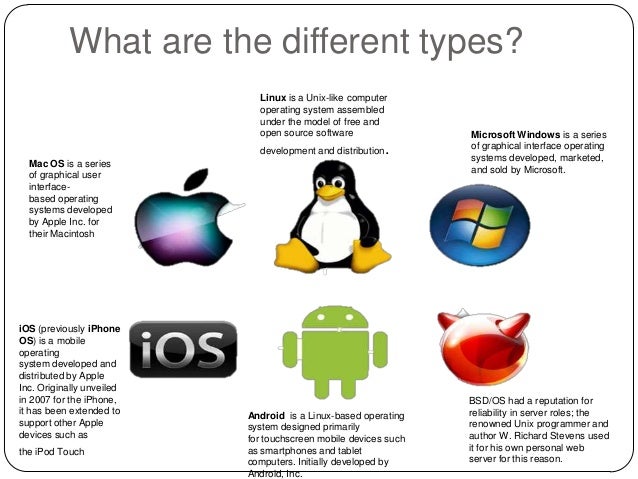FTC's Appeal Of Microsoft-Activision Merger: A Deep Dive

Table of Contents
The FTC's Concerns Regarding the Merger
The FTC's opposition to the Microsoft-Activision merger stems from serious concerns about potential anti-competitive practices. Their primary argument centers on the idea that the merger would grant Microsoft an unfair monopoly, stifling competition and harming consumers. The FTC's concerns are multifaceted and deeply rooted in antitrust law:
-
Game Exclusivity: The FTC's most prominent concern revolves around the potential for Microsoft to make Activision Blizzard's popular titles, especially Call of Duty, exclusive to its Xbox ecosystem. This could significantly disadvantage competitors like Sony PlayStation, potentially locking players into the Xbox ecosystem and harming competition. This tactic is viewed as a classic anti-competitive maneuver.
-
Price Increases: The FTC argues that reduced competition could lead to higher prices for gamers across the board, not only for Activision Blizzard titles but potentially for other games as well. A less competitive market can lead to less innovation and increased costs passed onto the consumer.
-
Reduced Competition Among Developers: The merger could diminish competition among game developers and publishers, creating a less innovative and dynamic market. A smaller number of major players could lead to a decrease in the variety and quality of games available to consumers.
-
Impact on Subscription Services: Microsoft's Game Pass subscription service is a key element in this discussion. The FTC worries that incorporating Activision Blizzard's titles into Game Pass could give Microsoft an insurmountable advantage over competitors, further stifling competition in the subscription market. This could lead to a dominance that harms other subscription services and limits consumer choice.
The FTC's statements and press releases repeatedly emphasize the potential for a "monopoly" and the need to protect "competition" in the gaming market. Their arguments hinge on the precedent set by antitrust law, aiming to prevent the creation of a dominant player that could stifle innovation and harm consumers.
Microsoft's Defense Strategy
Microsoft has vigorously defended its acquisition, arguing that the merger would ultimately benefit gamers and promote competition, not restrict it. Their counter-arguments focus on the following:
-
Call of Duty's Multi-Platform Commitment: Microsoft has repeatedly pledged to keep Call of Duty available on multiple platforms, including PlayStation, to alleviate the FTC's concerns about exclusivity. This commitment is a central part of their defense strategy.
-
Game Pass Expansion and Benefits: Microsoft highlights the expansion of Game Pass as a major benefit for gamers. They contend that offering a wider variety of games at a subscription price increases accessibility and benefits consumers.
-
Promoting Competition, Not Restricting It: Microsoft argues that the merger will actually foster competition by bringing together resources and talent, ultimately leading to more innovation and better games.
-
Proposed Concessions: To address the FTC's concerns, Microsoft has offered various concessions and remedies, though the details remain subject to ongoing negotiations and legal proceedings. These proposed solutions might involve agreements to license Call of Duty to competitors or other measures aimed at alleviating the FTC's antitrust concerns.
Microsoft's defense strategy emphasizes "market share" arguments, emphasizing that even with the acquisition, they would not dominate the market to an unacceptable degree. They also highlight the potential for "innovation" and "consumer benefits" stemming from the merger.
The Legal Battle and Key Players
The legal battle surrounding the FTC's appeal of the Microsoft-Activision merger has been protracted and complex. It involves a timeline of court dates, key rulings, and extensive legal maneuvering by both sides. The key players involved include judges presiding over the case, legal teams representing both Microsoft and the FTC, and representatives from Activision Blizzard itself. The legal arguments focus on the interpretation of antitrust law, focusing on whether the merger would create a substantial lessening of competition. The process has involved detailed analysis of market share data, competitive dynamics, and consumer behavior. We've seen extensive use of expert testimony and legal precedents in the ongoing "antitrust law" arguments. The "legal proceedings" are an intricate dance of legal strategies, with each side trying to shape the narrative and influence the ultimate decision.
Potential Outcomes and Their Implications
Several potential outcomes exist for the FTC's appeal:
-
Merger Approval: The court could fully approve the merger, allowing Microsoft to acquire Activision Blizzard without restrictions. This would likely lead to Microsoft integrating Activision Blizzard's assets into its ecosystem, potentially altering the gaming landscape significantly.
-
Merger Rejection: The court could reject the merger outright, forcing Microsoft to abandon its bid. This outcome would maintain the status quo in the gaming industry.
-
Modified Merger Agreement: The court could approve the merger with conditions, demanding certain concessions or remedies from Microsoft to address the FTC's concerns. This might involve stipulations regarding game exclusivity, pricing, or access to Game Pass.
The implications of each outcome are far-reaching:
-
Microsoft and Activision Blizzard: The outcome significantly impacts their financial prospects, future strategies, and market position.
-
The Gaming Industry: The decision will influence the competitive landscape, affecting other game developers and publishers, and potentially shaping the future direction of the industry.
-
Gamers: The outcome impacts the availability, pricing, and overall experience of gaming for millions of players worldwide. The "future of gaming" depends heavily on this critical court decision, with its "antitrust implications" shaping the market for years to come. The "merger approval" or lack thereof will impact consumer choices and market competitiveness.
Conclusion: The Future of the FTC's Appeal of Microsoft-Activision Merger
The FTC's appeal of the Microsoft-Activision merger represents a crucial moment for the gaming industry. The key arguments—the FTC's concerns regarding anti-competitive practices and Microsoft's defense of consumer benefits and market competitiveness—highlight the complex issues at the heart of this legal battle. The potential implications of the appeal's outcome are vast, potentially altering the gaming landscape for years to come. While predicting the outcome with certainty is impossible, the ongoing legal proceedings and the weight of the arguments suggest a potential for a modified merger agreement, rather than a complete rejection or unfettered approval.
To stay informed about the developments in the FTC's appeal of the Microsoft-Activision merger, follow reputable news sources covering the case and monitor updates from the FTC and Microsoft. Understanding the implications of this landmark case is crucial for anyone involved in or interested in the future of the gaming industry. Staying updated on this case is essential to understanding the evolving "FTC's Appeal of Microsoft-Activision Merger" and its impact on the gaming world.

Featured Posts
-
 Creating A Good Life Practical Steps For A More Meaningful Existence
May 31, 2025
Creating A Good Life Practical Steps For A More Meaningful Existence
May 31, 2025 -
 Is Apple Rebranding Its Operating Systems A Look At The Rumors
May 31, 2025
Is Apple Rebranding Its Operating Systems A Look At The Rumors
May 31, 2025 -
 3 000 Year Old Mayan Complex Unearthed Pyramids And Canals Revealed
May 31, 2025
3 000 Year Old Mayan Complex Unearthed Pyramids And Canals Revealed
May 31, 2025 -
 Decoding Veterinary Watchdog Complaints Fact From Fiction
May 31, 2025
Decoding Veterinary Watchdog Complaints Fact From Fiction
May 31, 2025 -
 Tain Offers Temporary Shelter To Rogart Veterinary Practice After Fire
May 31, 2025
Tain Offers Temporary Shelter To Rogart Veterinary Practice After Fire
May 31, 2025
